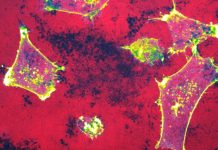Open Access Government lifts the lid on the priorities of the National Cancer Institute, when it comes to cancer research in the U.S
The National Cancer Institute (NCI), part of the National Institutes of Health (NIH), is a government agency concerned principally with cancer research in the U.S. NCI is one of 11 agencies from the Department of Health and Human Services (HHS). With a team of around 3,500, NCI describes how they show a deep commitment to their central values of: “equity, diversity, and inclusion that allow all staff to reach their potential and fully contribute to the Institute’s cancer mission.”
The NCI’s mission is essentially to support, lead and conduct cancer research in the U.S. to not only progress scientific knowledge, but also to help individuals live healthy and long lives. (1) The National Clinical Trials Network (NCTN) and Cancer Grand Challenges are examples of how this bold mission is being achieved. Also, we find out about the aim of the Biden‒Harris Administration to end cancer as we know it today.
NCTN: NCI’s National Clinical Trials Network
NCI’s NCTN consists of clinicians and organisations that support and coordinate cancer clinical trials at no less than 2,200 sites across North America and beyond. In essence, NCTN facilitates the infrastructure for NCI-funded treatment and primary advanced imaging trials that seek to better the lives of those with cancer. For example, the Imaging and Radiation Oncology Core Group (IROC) assist in ensuring and monitoring quality in trials to do with radiation therapy and/or new imaging modalities. (2) NCTN set up an Imaging and Radiation Oncology Core (IROC) Group that assist all NCTN groups that make use of these modalities in trials. (3)
Funding for cancer research in the U.S.
In recent news, we learn that the Cancer Grand Challenges program will fund $100 million to four interdisciplinary teams globally to solve some of the hardest cancer research challenges. Here, NCI is partnering with Cancer Research UK and as such, each team will get $25 million over a five-year period. In the words of the press release, “Cancer Grand Challenges aims to provide multiple rounds of funding for multidisciplinary research teams from around the world whose novel ideas have the greatest potential to advance cancer research and improve outcomes for people affected by cancer,” sums up the high level of ambition demonstrated here.
The four selected teams are researching:
1) A muscle-wasting condition in patients with cancer (called cachexia).
2) Biology concerning extrachromosomal DNA in cancer.
3) New therapies for children with solid tumours.
4) Triggers for normal cells causing cancer-causing mutations to become tumour cells. (4)
“The partnership with Cancer Research UK (5) to develop the projects funded for the Cancer Grand Challenges program will enable a global collaboration on a disease that has touched everyone around the world,” Douglas R. Lowy, M.D., Acting Director at the NCI comments. “We’re confident these multidisciplinary teams of scientists — with the flexibility and scale to innovate and carry out cutting-edge research — will be able to address several critical cancer research problems that can advance the understanding of cancer and benefit patients,” he adds.
Cancer: Looking ahead
We hope that the above examples and many more from the NCI will help toward the U.S. President’s ambition to end cancer as we know it today. “We have an audacious but achievable goal to reduce the cancer death rate by at least half in 25 years and to improve the experience of all whose lives are impacted by cancer—working across government to develop and deploy additional ways to prevent, detect and treat cancer,” says Danielle Carnival, PhD, White House Cancer Moonshot Coordinator.
Norman Sharpless recently stepped down as Director of the National Cancer Institute and knows that the passion and talent in NCI will continue across the cancer research community and, of course, the Biden‒Harris Administration. This approach “will continue to fuel tremendous progress for people with cancer in the years ahead,” Dr Sharpless explains.
“During my time in the federal government, I have been inspired by the ways that researchers, caregivers, advocates, and survivors have broken down silos to collaborate and embrace new ways of working together to solve some of the toughest problems in cancer. President Biden’s continued commitment to the Cancer Moonshot℠ will foster even greater progress. The community stands ready to meet the President’s call to end cancer as we know it,” Dr Sharpless adds. (6)
To find out the latest news from the NCI, it’s well worth a look through their comprehensive resource here about cancer research, such as the launch of a programme to offer molecular characterization of childhood cancers (7) or a study that advances personalised immunotherapy for metastatic breast cancer. (8)
Source
National Cancer Institute at the National Institutes of Health (NIH).
References
The links below were originally published by the National Cancer Institute, except (3) and (5).
- National Cancer Institute Overview and Mission (https://www.cancer.gov/about-nci/overview)
- NCTN: NCI’s National Clinical Trials Network (https://www.cancer.gov/research/infrastructure/clinical-trials/nctn)
- IROC (https://www.irocqa.org/)
- Four multinational, interdisciplinary teams selected to address major challenges in cancer (https://www.cancer.gov/news-events/press-releases/2022/cancer-grand-challenges-funded-teams)
- Inside Cancer Grand Challenges Part 1: what makes a grand challenge? (https://news.cancerresearchuk.org/2022/06/16/inside-cancer-grand-challenges-part-1-what-makes-a-grand-challenge/)
- Norman Sharpless steps down as director of the National Cancer Institute (https://www.cancer.gov/news-events/press-releases/2022/nci-director-norman-sharpless-steps-down)
- NCI launches program to offer molecular characterization of childhood cancers (https://www.cancer.gov/news-events/press-releases/2022/childhood-cancer-molecular-characterization-initiative)
- NCI study advances personalized immunotherapy for metastatic breast cancer (https://www.cancer.gov/news-events/press-releases/2022/personalized-immunotherapy-metastatic-breast-cancer)











